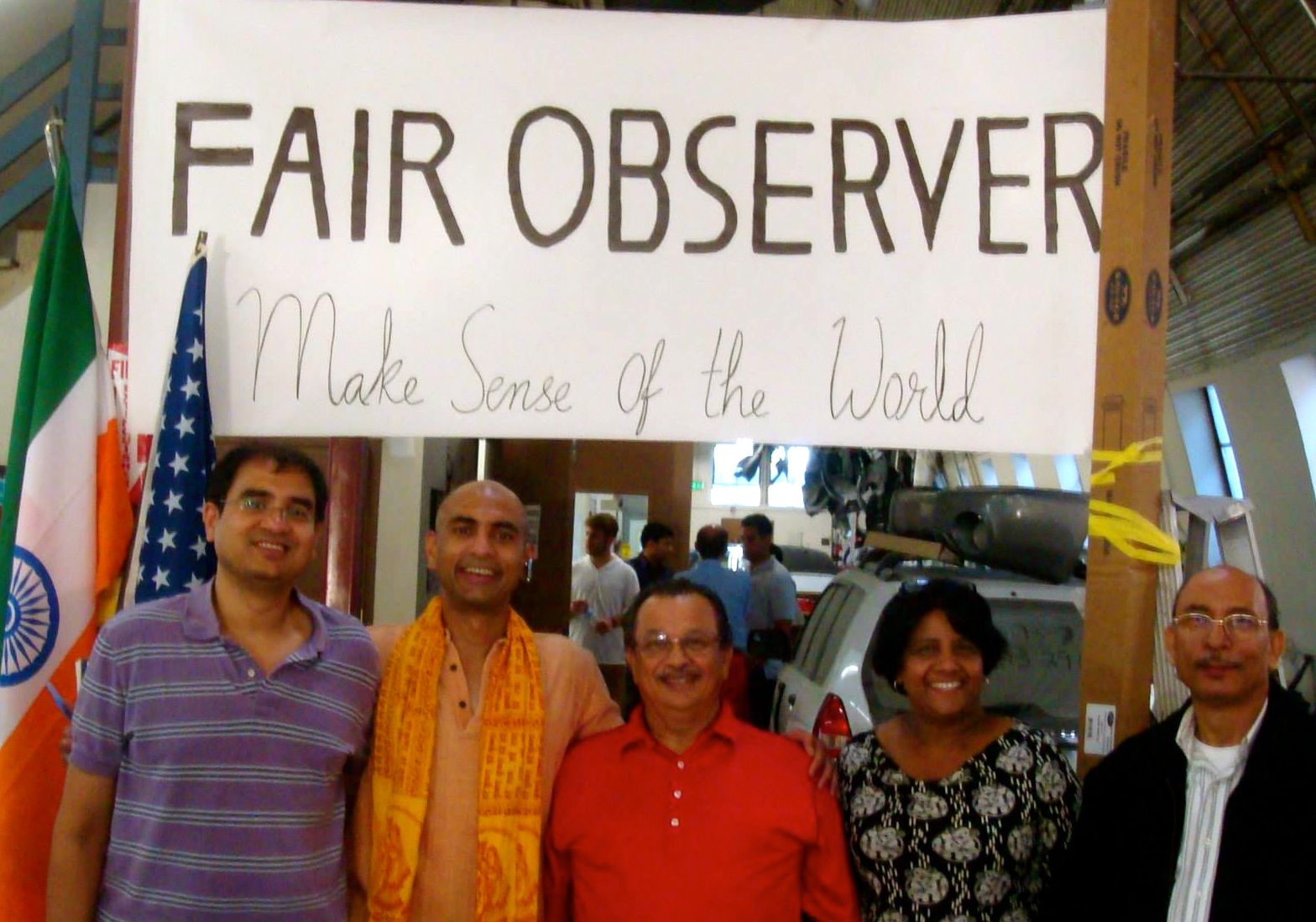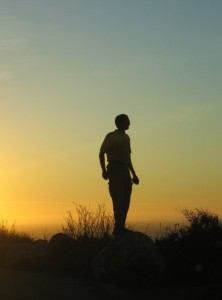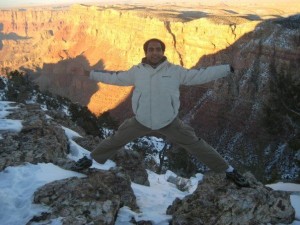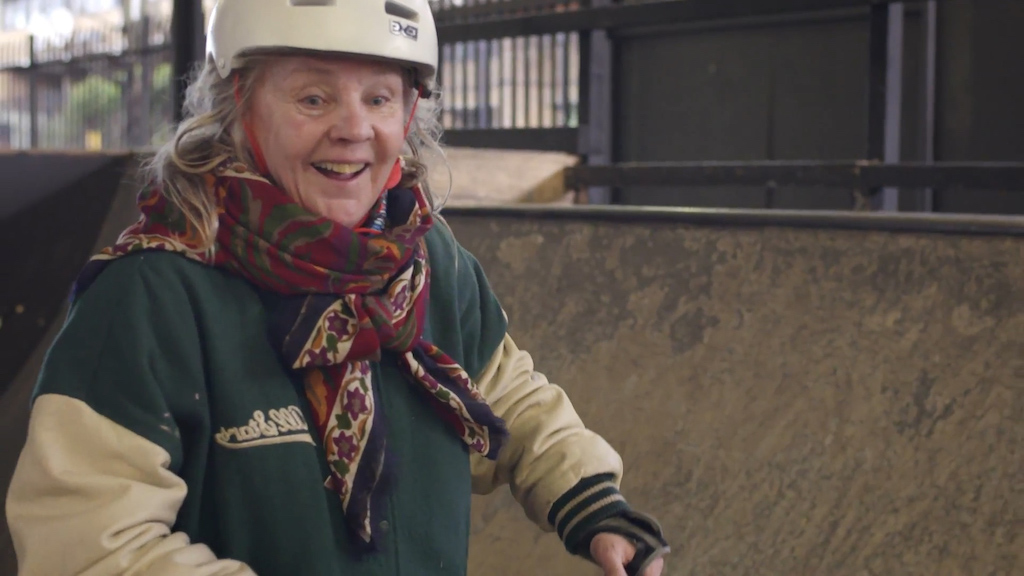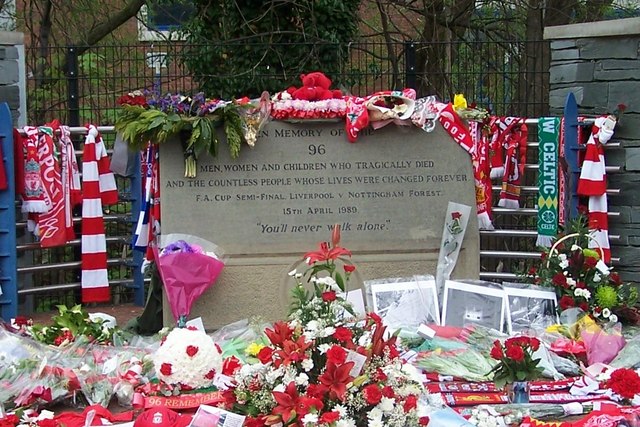Atul Singh is a leader and an adventurer who has successfully dabbled in many different professions across different continents. A true visionary, Atul has worked as a lawyer, a poet, a playwright, a debater and is the Founder and Editor-in-Chief of Fair Observer, undoubtedly one of the most promising media platforms currently out there.
Atul and I Skyped on a Thursday afternoon, he from an outrageously spacious flat in the US and me from a rather less impressive room in Bournemouth. It was quite early in the morning in the US but Atul seemed ferociously awake as he sat on a sofa, having driven 5000 km across the USA as part of Fair Observer’s Kickstarter campaign to raise funds in hopes of becoming even more inclusive, interactive and inspiring. It’s not long before I realise the true extent of Atul’s contagious passion and enthusiasm about media.
When did you decide to set up Fair Observer?
I suffered a neck injury in 2010, after graduating. I was laying on the floor at a friend’s place and I came up with the outline. The idea was forged in March when I attended the New York Global Media Summit.
What was the reasoning behind it?
I felt that the media was sensationalist, ethnocentric and it lacked context. These are the three problems that Fair Observer sets out to solve, by providing context and analysis, and ensuring that the latter comes from around the world. The idea was to transcend backgrounds, beliefs and borders, and to create something which was truly international, global and insightful. Fair Observer not only seeks to inform, it also aims to educate. This is very much in keeping with the old civic ideal that only an enlightened citizenry can have an engaged democracy.
What kind of education is required?
Citizens must be broadly educated, not just in terms of learning a skill or a craft. We are talking about an ability to make sense of the world and that is why this is our motto.
How did your background influence your decision to set up Fair Observer?
I grew up all around India, I am an army brat. I have always been a nomad. I ran away from home at seventeen and walked around India. Walking around is much more fun than driving because there is much more human contact. My background shaped me and prepared me for Fair Observer. When I was a child, my father gave me four history books to read: a British, an American, a Soviet and an Indian one. I grew up with a sense that there are many narratives and from very early on I caught on to the fact that all History is Mythology and all News is Fiction.
“History is Mythology and all News is Fiction” – Atul Singh
I worked as a student leader in Lucknow, as an officer in Nagaland and at Freshfields in London and saw how different aspects of the world work, as an insider, not as a journalist peeking in and this shaped my understanding of why it is important to get many perspectives, because we all have blind sights. We all become so involved in what we do in our attempt to succeed that we often forget that there is a wider world. I felt that if we all came together then we could achieve a better approximation of the truth and a mitigation of our individual blind sights.
Many scholars have commented on the fact that globalisation has led to a dominance of the Western media. Do you agree?
I would not even call it Western Media because when was the last time that you heard what the Germans thought? In England you never hear what the Germans think. When was the last time that you came across the French view of the world? Maybe a few people read ‘Le Monde,’ but let’s not call it Western. The Western media does not dominate, the poor French and Germans feel marginalised, probably as marginalised as the Indians and the Chinese. The Chinese can swagger around and everyone takes notice, but the German Chancellor gets her phone tapped and no one seems to care, and they pay for everything. I really detest the notion of Western media!
So what exactly is the problem?
It is very popular in the English speaking world to gloss over the fact that it is just the English media and by that I mean it’s English, not even Scottish! It’s not just English, it’s very Oxbridge. It’s not just very Oxbridge it’s also very public school. It’s Eton, Winchester, Westminster, Harrow, Rugby, Radley. I can count these schools on two hands. That is the media. It is not Western. The idea of the West would certainly have to include Germany, which is where the Reformation began. It would also have to include Italy, which is where the Renaissance began and it would most certainly have to include Scandinavia, which is where you have had a great experiment in social democracy. The problem is that you have monolingual kids talking about parts of the world that they don’t know. They have never been there or if they have been there, they do not know the history, or the language, or the culture. It’s just unacceptable, it is appalling.
Royalty also sends a bad social message, it is unfinished business. It leads people to believe that you have to be born into a position. You will always have some form of class system, you will always have social segregation, some form of systematic bias against social mobility as long as you have royalty. I am not asking for Soviet equality, or Socialism, what you need is an equity of opportunity. That is why Revolutions happened in Europe, that is why colonies wanted freedom from their European masters. Every society should eventually be a Republic.
What other challenges are the media facing?
The challenges are huge. No one wants to pay for content, so how do we find a revenue model to survive? There is a fundamental problem in terms of monetisation and sustainability. Secondly, the problem goes beyond the money issue; we are all competing for people’s time. People are living in the state of Brownian motion courtesy of Facebook, Twitter, Instagram…you name it. All this wonderful stimulation of our minds and brains means that people have very little time for deep content. For Christ’s sake, in Japan people are so hooked to their cell phones that they aren’t even having sex! Cell phones are defeating evolution.
“Cell phones are defeating evolution” – Atul Singh
It is also about name recognition, Fair Observer is up against the big boys. The Economist has been around since 1843 and despite backing the war on Iraq it has wide recognition. Even the Indians read The Economist, and they are unaware of the fact that it opposed India’s independence. These publications have massive budgets and they produce very good quality. It’s an uphill battle.
Why should people visit Fair Observer?
In this global era, people want their voices and narratives to be heard on the global stage. People do not want the discussion and discourse of the world to be done by the chosen few, the self-anointed Oxbridge elite. People think, hang on a minute, I have a narrative, a perspective and I will like to tell you about it. We are very simply democratising and globalising media and bringing public education about different voices and narratives through that. We have more than 700 contributors from more than 30 countries and our audience is increasing. Every article on Fair Observer is attributed to an author, you know exactly who has written it, we offer more transparent narratives. Writers in The Economist hide behind the wheel of the establishment. It’s very much like the Catholic Church, you do not know who is saying what. In Fair Observer you know who is writing the article, Israeli, Palestinian, French or Brazilian, and if you disagree you can write a response. Do not write something hateful or incoherent, write something better and we will publish it. That is our strength. The Wikipedia model, for example, is great and works beautifully for information and we have our edge in world affairs due to transparency and openness.
What is your long term vision?
Do you remember a time when everyone had Encyclopaedia Britannica? It was ridiculously expensive, beautifully bound and good quality. Then a little edgy startup called Wikipedia came along. If you look at the Wikipedia entry for Charles Cornwallis, the man who lost to George Washington and went to civilise India by creating the current administrative structure, which Indians have never discarded because in some way Indians are still colonised, you will see that it is much better than that found in Britannica. We want to do to The Economist what Wikipedia did to Encyclopedia Britannica. That’s the goal.
Fair Observer has been made possible due to the Internet. Do you think that the Internet has fanned peoples’ thirst for International affairs?
I am very careful about saying that the Internet has fanned the thirst for something, I think that the thirst was already there. The internet like other new technologies is a double edged sword. The internet is a huge distraction and it has actually led to both the decline of great media names and writing. People do not have the same attention spans, they do not read the classics growing up because they are constantly hyper connected. There has been a decline in deep thinking. I am a victim of this too, I do my best thinking when I don’t have social media, when I am driving, watching the desert, that is when I get insights on things like globalisation, structures of governance and how society is changing, and how family structures are disintegrating with the rise of individualism. At the same time the Internet is also a great opportunity. We would not be around were it not for the internet.
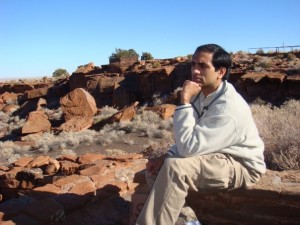 Finally, Gandhi once said that, ‘The sole aim of journalism should be service.’ Is the industry stepping over in to the realm of entertainment?
Finally, Gandhi once said that, ‘The sole aim of journalism should be service.’ Is the industry stepping over in to the realm of entertainment?
The tabloids are pure entertainment. A lot of media is entertainment, particularly in America and specially when it comes to television. Fox News is a spectacle, even CNN is a spectacle. Jon Stewart is the most distinctive observer in American politics and culture, and so many Americans get their news from him. I love that he is supposedly in the entertainment business but he is actually informing the public while entertaining them. There is still quality media which informs and educates; Propublica is fantastic! The Economist again does very good work, I may not agree with their views but they have stuck to their guns. The BBC World News Service largely does its job, although I don’t like it when they put the marriage of Kate and William as top news and a plane crash or starving children are pushed down. The problem is that a lot of the media has entered into a race to the bottom and it is not just entertainment, it is sensationalism, mis-information and at times down right propaganda. What you see on Italian or Indian TV is despicable. In India the lesser said the better. This is much worse than entertainment, it is self-censorship and corruption. The media have got into bed with the powerful and are producing questionable prodigies after copulation. That is wrong. Media is the fourth estate. It has a duty to serve the public. That is a non-negotiable.





